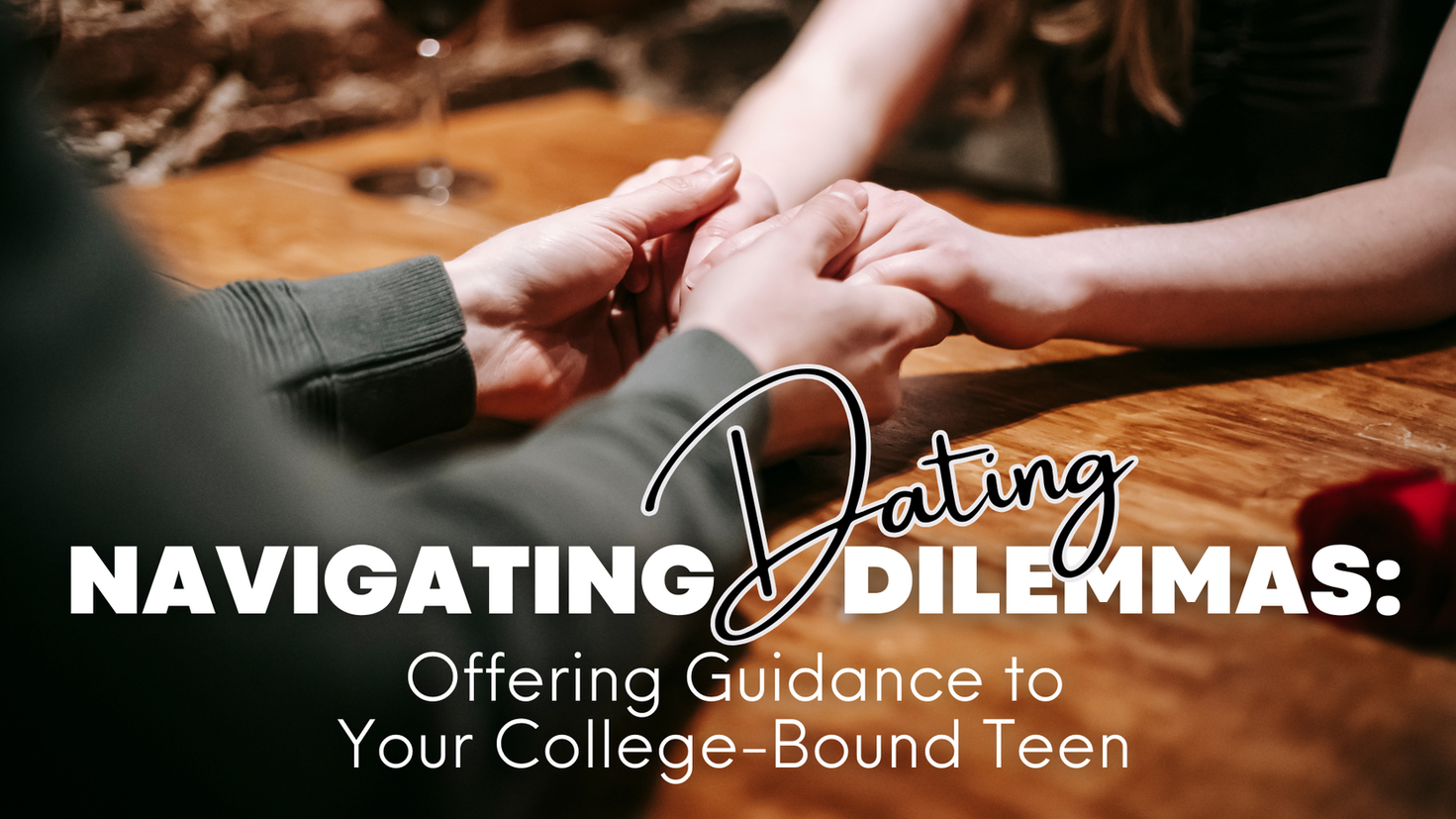Helping Your Teen Handle College Dating Safely

As your teen heads off to college, the excitement of new beginnings is often mingled with a sense of apprehension. Among the many new experiences they’ll face, dating can be one of the most complex. Whether your teen has been in relationships before or is just beginning to explore this aspect of life, college dating brings its own set of challenges and opportunities. As a parent, you want to offer guidance without overstepping, support without smothering, and advice without judgment.
Here's how you can do just that.
1. Understand Their Perspective
College is a time of exploration, and dating is no exception. Your teen might be navigating the first serious relationship or figuring out what they want in a partner. It’s essential to approach these conversations with an open mind, recognizing that their experiences might be vastly different from what you encountered at their age.
- Solution:
- Initiate conversations about dating in a non-judgmental way. Ask open-ended questions like, "What are you looking forward to in your relationships at college?" or "How do you feel about dating while balancing your studies?"
- Checklist Item:
- Have at least one heart-to-heart conversation about dating before they leave.
- Acknowledge that their experience may differ from yours and be open to learning from them.
2. Teach the Importance of Healthy Relationships
College is often the first time teens are away from the daily oversight of their parents, which means they need to recognize the signs of healthy versus unhealthy relationships. This includes understanding mutual respect, consent, and communication.
- Solution:
- Share resources on healthy relationships and discuss what constitutes respectful behavior. Encourage your teen to trust their instincts and speak up if something feels off.
- Checklist Item:
- Share articles or resources on healthy relationships.
- Role-play scenarios where they might need to set boundaries or assert themselves.
3. Encourage Open Communication
The college environment can sometimes blur the lines between independence and isolation. Your teen might feel pressured to handle everything on their own, including relationship challenges. Establishing a foundation of open communication will encourage them to turn to you when they need advice or just someone to talk to.
- Solution:
- Let your teen know that they can always talk to you, no matter what the issue is. Avoid being overly critical or dismissive when they share their dating experiences.
- Checklist Item:
- Establish a regular check-in schedule, whether it's weekly calls or texts, where they feel comfortable discussing personal matters.
- Reassure them that you’re there to listen, not to judge.
4. Discuss the Role of Digital Communication
In today’s world, much of dating happens online, from initial meetups on apps to maintaining long-distance relationships. While technology can be a great way to stay connected, it also comes with risks, such as misunderstandings or even harassment.
- Solution:
- Talk to your teen about the pros and cons of digital communication in relationships. Encourage them to be mindful of what they share online and to set boundaries around their digital interactions.
- Checklist Item:
- Discuss the importance of privacy and the risks of oversharing online.
- Encourage them to have in-person conversations about important topics whenever possible.
5. Address Safety Concerns
Safety should always be a priority, especially in the dating world. From meeting new people to going out on dates, there are steps your teen can take to protect themselves.
- Solution:
- Share practical safety tips, such as meeting in public places, letting friends know where they’re going, and never feeling obligated to stay in an uncomfortable situation.
- Checklist Item:
- Provide a list of safety apps and resources that your teen can use, such as location-sharing apps with trusted friends.
- Discuss strategies for exiting uncomfortable or unsafe situations.
6. Offer Emotional Support
Dating can bring both joy and heartache. Your teen might experience everything from the excitement of a first love to the pain of a breakup. Let them know that whatever they’re feeling is valid and that you’re there to support them through it all.
- Solution:
- Be a source of comfort and reassurance. Encourage them to express their emotions and seek support when needed.
- Checklist Item:
- Let your teen know that they can always reach out to you for support, whether it’s a late-night call or an impromptu visit home.
- Remind them that it’s okay to seek counseling or other mental health support if they’re struggling emotionally.
7. Balance Independence with Parental Guidance
Finally, remember that college is a time for your teen to grow into their own person. While it’s important to offer guidance, it’s equally crucial to allow them the space to make their own decisions and learn from their experiences.
- Solution:
- Trust your teen to navigate their dating life while remaining available for support and advice. Encourage them to make decisions based on their values and well-being.
- Checklist Item:
- Reassure your teen that you trust them to make good decisions.
- Remind yourself to step back when needed, allowing them to learn and grow.
Navigating dating during the college years is a learning experience for both teens and their parents. By offering guidance rooted in understanding, open communication, and trust, you can help your teen build healthy, fulfilling relationships while also fostering their independence.
Remember, this is a journey of growth for both of you—one that, when approached with care and compassion, can strengthen your bond in new and meaningful ways.
Want more tips on guiding your teen through their college transition?
Subscribe to my newsletter for more insights and resources, and follow me on social media for weekly advice!
Thank you for subscribing!
Have a great day!
Author:
Dr. Michelle Lloyd
Transition Success Coach
